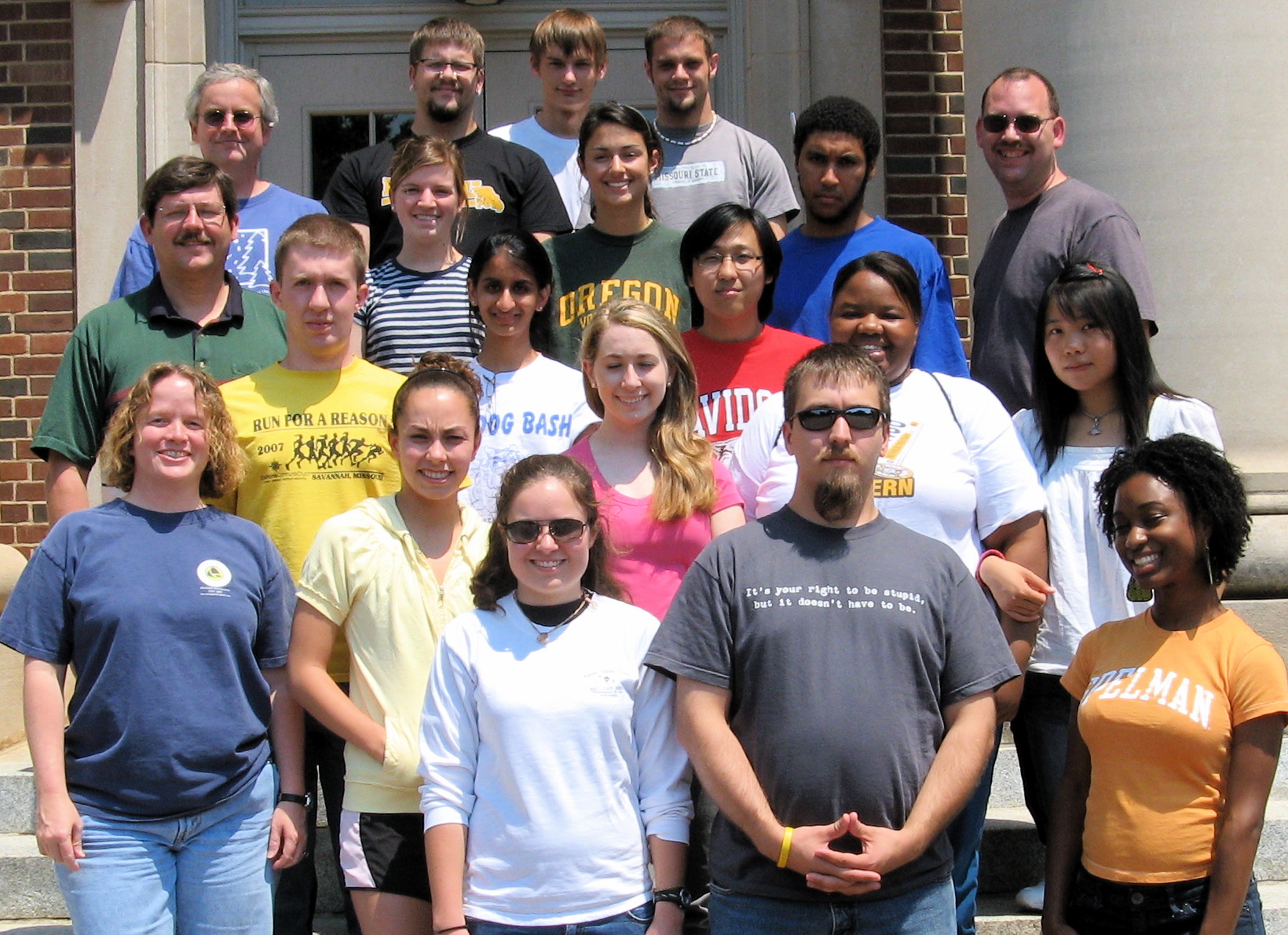Team:Davidson-Missouri Western
From 2008.igem.org
Krmuscalino (Talk | contribs) |
Krmuscalino (Talk | contribs) |
||
| Line 25: | Line 25: | ||
| - | '''[[Team:Davidson-Missouri_Western/ | + | '''[[Team:Davidson-Missouri_Western/Experience Gained on New Registry Parts|Experience gained on new registry parts]]''' - we measured the function of several of the new parts we designed, and some expectations were met |
'''[[Team:Davidson-Missouri_Western/Improvement of pre-existing Registry parts ]]''' - we redesigned the lac promoter and the lac repressor and measured an improvement in their functions | '''[[Team:Davidson-Missouri_Western/Improvement of pre-existing Registry parts ]]''' - we redesigned the lac promoter and the lac repressor and measured an improvement in their functions | ||
Revision as of 17:05, 28 October 2008
Davidson College - Missouri Western State University
iGEM 2008
Team Description
This team is composed of faculty and undergraduates from Davidson College in Davidson, North Carolina USA and from Missouri Western State University in Saint Joseph, Missouri USA and includes one student from Spelman College and one student from Hampton University. This is the third year of this iGEM collaboration for the faculty members and the first year for each of the fifteen students. This year, the team worked collaboratively from the two campuses for most of the summer but spent one week visiting each other's campuses, working shoulder-to-shoulder. The above picture was taken in July on the steps of the Chambers Building on the Davidson College campus.
Project Abstract
E. nigma: XOR Gates, a Bacterial Hash Function, and Viz-A-Brick
Our team designed, modeled, and constructed a bacterial computer that uses XOR logic to compute a cryptographic hash function. Hash functions are used to authenticate the integrity of a document by computing its digital fingerprint, an integer value that can be compared to the publicized value. Our bacterial computers are designed to recognize the presence or absence of two chemical signals via intercellular communication. Mathematical modeling of these computers has shown that our hash functions are difficult to corrupt. We designed and built a number of new parts, and improved and gained experience on existing parts. We also produced a graphical interface for exploring the Registry of Standard Biological Parts called Viz-A-Brick, and other web-based tools to improve the construction of new parts with BioBrick ends.
Highlights
New Parts Contributed to the Registry - we designed, built, and contributed 105 new parts to the Registry
Experience gained on new registry parts - we measured the function of several of the new parts we designed, and some expectations were met
Team:Davidson-Missouri_Western/Improvement of pre-existing Registry parts - we redesigned the lac promoter and the lac repressor and measured an improvement in their functions
Team:Davidson-Missouri_Western/Online tools that support the design of new biobrick parts - we created online tools to aid in part design
Team:Davidson-Missouri_Western/Viz-A-Brick: A new way to visualize the Registry - we created a new interface to the Registry that addresses Human Practice issues associatated with navigating the expanding Registry
Team:Davidson-Missouri_Western/E. nigma Project - we designed and constructed several systems for using logic gates to compute hash functions in bacteria
iGEM 2008 powerpoint presentation
iGEM 2008 poster
Objective: Create Ideal Hash Function that Bacteria will Compute
Ideal Hash Function Characteristics
Hash Functions and Biological Systems
| Home | The Team | The Project | Parts Submitted to the Registry | Modeling | Notebook |
|---|
(Or you can choose different headings. But you must have a team page, a project page, and a notebook page.)
 "
"
